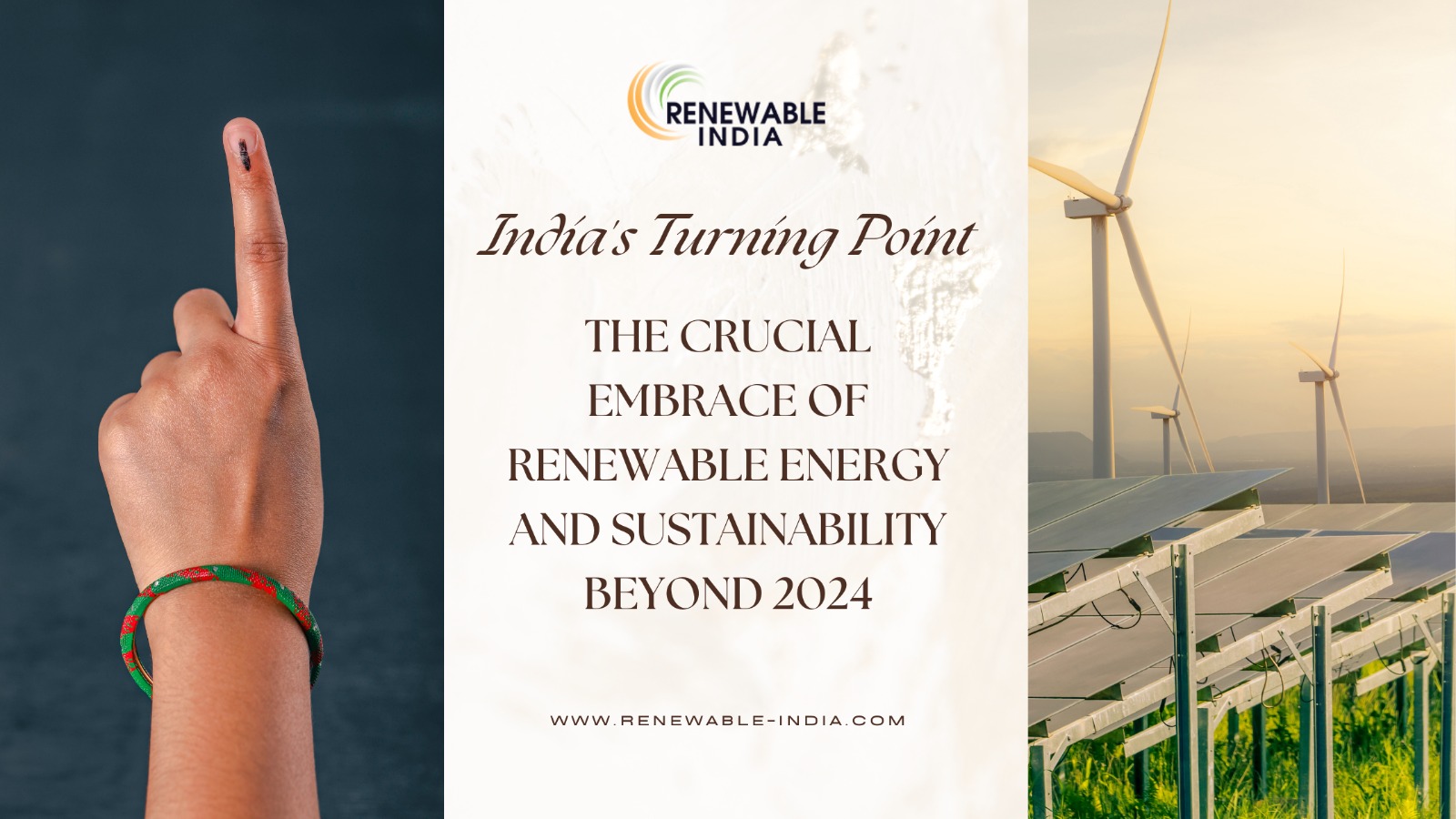
In the aftermath of the 2024 general elections, India finds itself at a crucial juncture, poised to embark on a transformative journey. With the new government stepping in, expectations are high for swift and decisive actions aimed at economic development, job creation, and skill enhancement. Central to this ambitious agenda is a robust focus on renewable energy and sustainability, key drivers that will shape the nation’s future.
India’s commitment to renewable energy has been on an upward trajectory. By the end of 2023, the country had achieved an impressive milestone of 125 GW of renewable energy capacity, including 45 GW of solar and 40 GW of wind energy. This represents a significant leap from the 87 GW recorded in 2019, underscoring a steady and strategic shift towards cleaner energy sources. The International Energy Agency (IEA) has projected that India’s renewable energy capacity could reach 500 GW by 2030 if the current pace of growth continues.
The new government is expected to build on this momentum. Expanding renewable energy infrastructure not only addresses environmental concerns but also stimulates economic growth.
Investments in solar parks, wind farms, and bioenergy projects can generate numerous jobs, particularly in rural and semi-urban areas. These projects require skilled technicians, engineers, and construction workers, providing ample opportunities for job creation and skill enhancement.
Adopting sustainable practices is crucial for India’s long-term economic development. The nation’s push towards a green economy can be a game-changer, potentially attracting significant foreign investments. In 2022, India received $10 billion in renewable energy investments, a figure that is expected to double by 2025 with supportive policies and a favorable investment climate.
The government’s role in facilitating this transition cannot be overstated. Incentives for green businesses, subsidies for renewable energy projects, and stringent environmental regulations can create a conducive environment for sustainable development. Moreover, integrating sustainability into the economic framework ensures resilience against global energy price volatility and enhances energy security.
The renewable energy sector is a fertile ground for job creation. According to the Council on Energy, Environment and Water (CEEW), the renewable energy sector in India created about 100,000 jobs in 2021 alone. With an ambitious target of 500 GW of renewable energy by 2030, the potential for job creation is immense. The sector is expected to create over 1 million jobs by 2030, encompassing a wide range of roles from installation and maintenance to research and development.
According to Mr. Ramesh Alluri Reddy, CEO of TeamLease Degree Apprenticeship, “The significant strides that India has made in the field of manufacturing, especially in Semiconductor, Pharma, Electronics, Auto, Infrastructure Engineering, EV, Green Hydrogen, and Solar Grids, is expected to continue. The software and back-office decades have given way to an era of manufacturing prowess, with India occupying a key place in China+1 strategy. However, the onus is on the next government to fuel the growth by addressing skill gaps faced by industries and raising the employability of our youth.”
He further continued, “Apprenticeships, a crucial intervention in creating an industry ready talent supply chain, have seen commendable growth mirroring industry’s skill-first approach. It has expanded at an average pace of nearly 40% annually in the last 4 years to reach a million apprentices today. However, it still accounts for merely 0.1% of the labor force, much less than the 3%-4% participation in developed economies.”
Skill enhancement is pivotal to harnessing this potential. Initiatives like the Skill Council for Green Jobs (SCGJ) have been instrumental in training individuals in the latest renewable energy technologies. The incoming government must amplify these efforts, ensuring that the workforce is equipped with the necessary skills to thrive in a green economy.
Partnerships with educational institutions and private sector companies can further bolster these training programs, creating a talent pool ready to drive India’s renewable energy ambitions.
Looking ahead, the future of India’s renewable energy and sustainability landscape appears promising. The government’s policies will play a critical role in shaping this future. Introducing innovative financing mechanisms, such as green bonds and sustainable investment funds, can accelerate the growth of renewable energy projects. Additionally, fostering research and development in emerging technologies like hydrogen energy and advanced battery storage will be crucial.
Projections indicate that India will generate an additional 30-35 million green skills across sectors by 2047, with the World Economic Forum forecasting a potential of 50 million skilled individuals contributing to a net-zero economy, with projected contributions totalling $15 trillion.
Furthermore, urban planning and infrastructure development must integrate sustainable practices. Smart cities powered by renewable energy, efficient public transportation systems, and green building standards can significantly reduce the carbon footprint and enhance the quality of life for citizens
As India stands at this pivotal moment, the path towards a sustainable and green future is clear. The new government’s commitment to renewable energy and sustainability will not only drive economic development and job creation but also position India as a global leader in the fight against climate change. By leveraging its renewable energy potential and embracing sustainable practices, India can ensure a prosperous and resilient future for generations to come.
Empowering Green Mobility: The Electric Mobility Promotion Scheme (EMPS)
Leave a Reply